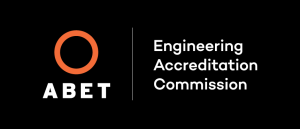B.S. in Systems Engineering
 The B.S. in Systems Engineering is an ABET accredited program that is a combination of mechanical, electrical, and industrial engineering. Since many of today’s engineering problems do not respect the traditional boundaries of engineering disciplines, it is important to have knowledge in each of these areas. Tomorrow’s engineers will also have to have knowledge about cultural, economic, and ethical issues to be able to make a positive technological and societal impact. This combination of a broad technical and liberal arts education will equip our graduates with the necessary skills to solve complex engineering problems and understand their societal and ethical impact.
The B.S. in Systems Engineering is an ABET accredited program that is a combination of mechanical, electrical, and industrial engineering. Since many of today’s engineering problems do not respect the traditional boundaries of engineering disciplines, it is important to have knowledge in each of these areas. Tomorrow’s engineers will also have to have knowledge about cultural, economic, and ethical issues to be able to make a positive technological and societal impact. This combination of a broad technical and liberal arts education will equip our graduates with the necessary skills to solve complex engineering problems and understand their societal and ethical impact.
Systems Engineering Courses by term:
| Year | Fall Semester | Spring Semester |
| Year 1 | PHYS 1500 (Physics I) – 5hrs Math 1700 (Calc I) – 4hrs ENGR 1000 (Fresh Engr I) WI – 3hrs ENGR 1001 (Fresh Engr I lab) – 1hr FYS (Freshman Year Exp) – 3hrs Total: 16 hours |
PHYS 1600 (Physics II) – 5hrs Math 1800 (Calc II) – 4hrs ENGR 1010 (Fresh Engr II) – 3hrs ENGR 1011 (Fresh Engr II lab) – 1hr INST (1500-WI) – 3hrs Total: 16 hours |
| Year 2 | Math 2700 (Multivariable Calc.) – 4hrs ENGR 2000 (Statics & Mech of Matr) – 4hrs CHEM 1700 (Accel Gen Chem) – 3hrs CHEM 1710 (Chem lab) – 1hr INST (Integrative Studies) – 3hrs Total: 15 hours |
Math 2500 (Linear Alg & Matr) – 3hrs ENGR 2100 (Dynamics) – 3hrs ENGR 2200 (Thermo, HT & Fluids) – 4hrs INST (Integrative Studies) – 3hrs Elective (Free) – 3hrs Total: 16 hours |
| Year 3 | Math 3100 (Intro to ODEs) – 3hrs ENGR 3000 (Electrical Systems I) – 3hrs ENGR 3001 (Electrical Systems I lab) – 1hr ENGR 3100 (Production Processes) – 3hrs ENGR 3101 (Production Processes lab) – 1hr ENGR 3200 (Materials) – 3hrs LFW – 1hr Total: 15 hours |
ENGR 3010 (Electrical System II) – 3hrs ENGR 3011 (Electrical Systems I lab) – 1hr ENGR 3500 (Statistics and QC) – 3hrs ENGR 3400 (Prod Systems I) – 3hrs INST (Integrative Studies) – 3hrs Total: 13 hours |
| Year 4 | ENGR 4100 (Automated Systems) – 3hrs ENGR 4101 (Automated Systems lab) – 1hr ENGR 4000 (Prod Systems II) – 3hrs ENGR Elective – 3hrs INST (Integrative Studies) – 3hrs INST (Integrative Studies) – 3hrs Total: 16 hours |
ENGR 4999 Elective – 2hrs ENGR 4999 Elective – 2hrs ENGR 4800 (Senior Proj) WI – 3hrs SYE – 3hrs INST (Integrative Studies) – 3hrs Total: 13 hours |
| Total Hours = 120 | ||
Overall Requirements:
- Total Math & Science – 32 credits (26.7%)
- Total major – 85 credits (does not include MATH 1700)
- Total Gen Ed – 35 credits (includes MATH 1700, FYS, SYE, LFW, INST (x7) and free elective)
Engineering Electives Can be Satisfied By:
- ENGR 4999s based on faculty areas of interest/research (Spring; 2 credit hours)
- ENGR 3050 (Numerical Analysis, Fall, 3 credit hours)
- Any Mechanical Engineering (MENG) course, level 3000 or higher
| Student Learning Outcomes | University Learning Goals (KMERI*) |
| 1. Identify, formulate, and solve complex engineering problems by applying principles of engineering, science, and mathematics. | Knowledgeable, Engaged |
| 2. Apply engineering design to produce solutions that meet specified needs with consideration of public health, safety, and welfare, as well as global, cultural, social, environmental, and economic factors. | Engaged, Responsible |
| 3. Communicate effectively with a range of audiences. | Multi-Literate |
| 4. Recognize ethical and professional responsibilities in engineering situations and make informed judgments, which must consider the impact of engineering solutions in global, economic, environmental, and societal contexts. | Responsible |
| 5. Function effectively on a team whose members together provide leadership, create a collaborative and inclusive environment, establish goals, plan tasks, and meet objectives. | Engaged, Responsible |
| 6. Develop and conduct appropriate experimentation, analyze and interpret data, and use engineering judgment to draw conclusions. | Knowledgeable, Engaged |
| 7. Acquire and apply new knowledge as needed, using appropriate learning strategies. | Inquisitive |
*NOTE: KMERI refers to Otterbein's learning goals. It stands for Knowledgeable, Multi-literate, Engaged, Responsible, and Inquisitive. To learn more about KMERI, visit our University Learning Goals page.

Apply
Now!